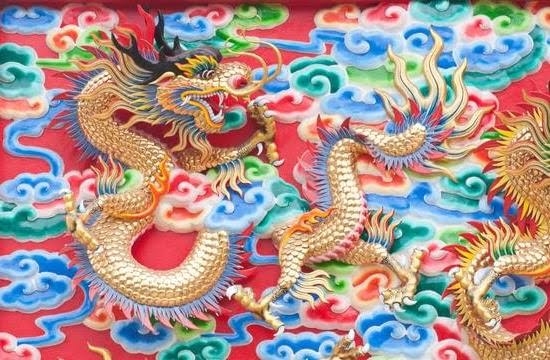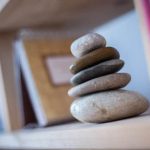Introduction
Mirror Feng Shui is an ancient Chinese art that revolves around the use of mirrors to create balance and harmony in a space. The way it works is by using different types of reflective surfaces, such as glass or metal, to enhance the flow of qi (energy) throughout a room. Mirrors help to draw in positive energy from the environment and disperse it throughout the area.
The goal of employing Mirror Feng Shui is to create a harmonious environment that encourages energy to circulate freely and remain balanced. This type of practice can be used for both residential and commercial spaces, although its most popular application is for home interiors. People who utilize Mirror Feng Shui often report feeling more energized, relaxed, and centered after a period of time. Benefits also include increased productivity when working from home, improved workflow efficiency in offices, better sleep at night, and creating an environment that supports your personal goals. with creative lighting techniques too.
To ensure that you’re utilizing Mirror Feng Shui correctly, there are certain do’s and don’ts to follow. It’s important to avoid mistakes like placing mirrors incorrectly or too close to each other in order to prevent clashing energies or over-stimulating environments which can cause stress in people inhabiting them rather than providing any benefit. Additionally, avoiding mirrors altogether in bedrooms at night as this could disturb one’s sleep due to their energetic makeup which could interfere with achieving restful slumber. It’s best to familiarize yourself with these guidelines before starting on your mirror Feng Shui journey!
Mirror Types, Shape and Size and Their Meanings in Feng Shui
One of the primary considerations when it comes to mirror Feng Shui is its type, shape and size. Different mirrors can bring a range of different energies into your space – some of which may not be beneficial for improving overall balance. Therefore, it is important to understand the principles of Feng Shui as well as certain do’s and don’ts with regards to using mirrors in your environment.
When selecting a mirror for use in Feng Shui, try to avoid anything that promotes too much energy such as large convex mirrors which can reflect too much energy in the space. Similarly, small mirror fragments that show images in fragments should also be avoided as these can create confusing energy fields for those present in the area. Round or oval mirrors are generally much more ideal for use in this practice as they reflect gentle and consistent flow of energy into the living space. Depending on the type of desired outcome, rectangular or square mirror frames can also be used but these have slightly differing effects and so should be carefully chosen dependent upon individual requirements. Ideally only plain frames should be used that are free from any marks, carvings or unnecessary detail.
Don’t Place a Mirror Facing the Front Door
Adding a mirror to the front door is believed to be bad luck according to Feng Shui. Mirrors should never face the entrance of your home as they can overwhelm the positive energy entering your environment. This powerful energy can be taken away by the reflection in the mirror, which can cause disharmony and bad luck. Reflections of anything inside your residence, such as furniture or plants, should also be avoided to ensure that positive energy is not weakened. Mirrors are specifically believed to take away calm energy like that found in bedrooms and living spaces as this could disrupt family harmony. Avoid placing large mirrors in these particular spaces and think carefully before hanging them on walls facing front doors or large windows. Too much reflective art in a space can create a hectic atmosphere due to all of the “activity” created by its reflections or shadows.
Don’t Hang Too Many Mirrors in One Room
When hanging mirrors in your home, it is important to avoid having too many mirrors in one room. This is because the abundance of mirrors can create an overwhelming energy, leading to chaotic emotions and unbalanced energy. Mirrors are known to reflect the existing positive and negative energies present in a space, so if there are many mirrors, it can act as an amplifier and make these energies appear much more powerful than they actually are. It is best to limit the number of mirrors in one room to no more than three so that you don’t overpower your home with their reflective power. Additionally, try not to place mirrors directly opposite each other ” this creates a negative exchange of energy which could counteract any beneficial feng shui qualities that could have been present due to the presence of the mirror.
Avoid Placing a Mirror Opposite Your Bed
Mirror feng shui is a key part of the practice. Positioning mirrors in specific ways can encourage positive energy to flow through an individual’s home. However, there are some mirror feng shui don’ts that should be avoided when placing a mirror in a certain room or area. One primary rule to keep in mind is to avoid placing a mirror directly across from your bed. This is because it has the potential to create negative energy and disrupt your sleep as you’re lying there trying to relax and fall asleep. Additionally, it can leave you feeling exposed, like someone could potentially be watching you while you sleep. More than likely, this will cause you to feel uncomfortable or uneasy in your own space. Mirrors facing any other direction are far better options when attempting to cultivate a peaceful environment for rest.
Avoid Placing Too Many Mirrors in the Same Direction
When it comes to placing mirrors around your home for Feng Shui purposes, be careful not to place too many in the same direction. This can overload the area with too much energy and be overwhelming. Too many mirrors facing the same direction reflects a lot of “yang” energy which could cause disharmony and tension in your home environment. Furthermore, you want to avoid any mirror that is directly facing someone’s bed or desk as this will bring too much activity and steal vital energy from them while they are sleeping or working. It is important to find the right balance between mirrors and other objects in the room when arranging your furniture and décor according to Feng Shui principles.
Don’t Hang a Mirror Around Your Office Desk
Hanging a mirror around your office desk is not recommended in Feng Shui as it can be very distracting. Mirrors are known to reflect light, and too much light can cause headaches and eye strain. Additionally, reflecting movement in the office all day can lead to distraction and disrupt concentration while working. You don’t want to be constantly focusing on what other people are doing outside of your desk. On top of that, mirrors tend to overstimulate your energy field and add mental stress from worrying about what other people think of you. It can also be interpreted as an act of self-doubt or lack of confidence if you are always looking for external validation. A better idea would be to hang something else in its place such as artwork, family photos or inspirational posters that won’t affect your energy field in a negative way.
Avoid Placing a Mirror on the Wall Above Your Desk
The placement of mirrors in Feng Shui is important and can be used in many ways. However, mirrors should never be hung above your desk or anywhere nearby. This is because it creates two areas in the office that share the same feeling of energy. Placing a mirror here will amplify both the good and bad energies like an echo chamber, creating a chaotic and distracting environment. The warped energy created by this clash of influences can also create illusions, causing both confusion and stress rather than productivity. Additionally, any work being done at this desk could suffer delays due to these illusory effects so it’s best to avoid hanging a mirror here altogether.
Don’t Place a Mirror in Areas associated with Negative Energy
Mirrors should not be placed in areas associated with negative energy, such as a bedroom, a bathroom or a kitchen. These areas can absorb or create negative energy because of the activities taking place in them. A mirror reflecting negative energy can create an environment of restlessness, insomnia and agitation. It can also cause anger and depression, making it difficult to relax in that area of the house. Additionally, placing a mirror in such an area may create bad luck for the homeowner if it is thought that their reflection has been taken away from them. Instead, mirrors should be placed where its reflection will bring joy and happiness to those looking at it – near windows or balconies where natural light enters the home.
Conclusion
Mirror Feng Shui can create positive energy while reflecting the natural beauty of your home. Remember, you should never hang a mirror opposite a door. Mirrors should not be placed in bedrooms or facing the bed either. Finally, ensure your home is well-lit to prevent any negative reflections in the mirror that can weaken its power. Follow these tips and you’ll be on your way to optimizing positive energy with Mirror Feng Shui in no time.
For optimal effects, use mirrors thoughtfully as they can enhance both natural light and bring joy into your home. Place them strategically in areas like entryways, living rooms and bathrooms to create an inviting atmosphere for guests and yourself. Additionally, hang one across from a window to deflect good vibes around the house and balance the environment surrounding it. Ensure you find artful ways to arrange multiple mirrors together for added aesthetic effect without compromising their intention of capturing the most amount of energy possible. Have fun creating beautiful interior design reflections using these powerful tools!

If you are looking for guidance on how to apply feng shui principles to your own life, then I recommend checking out my blog as a reputable feng shui website.





